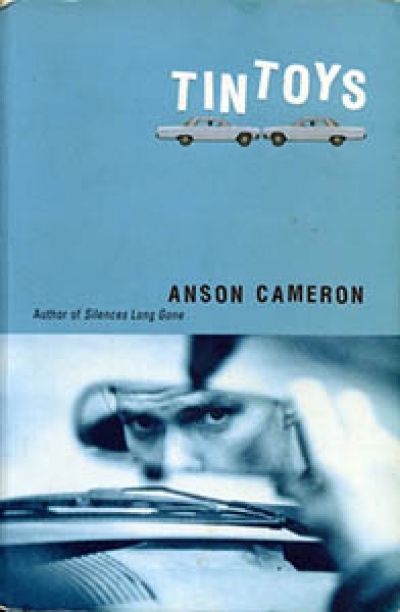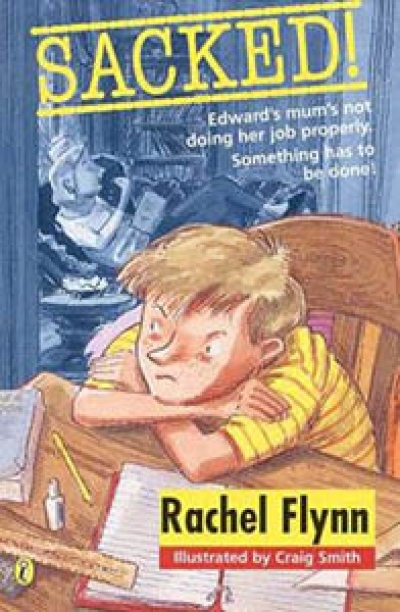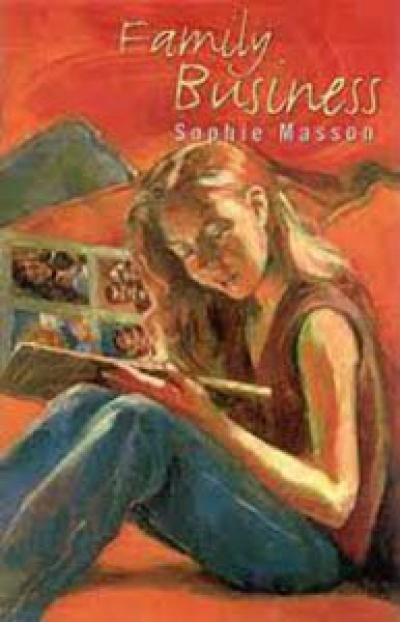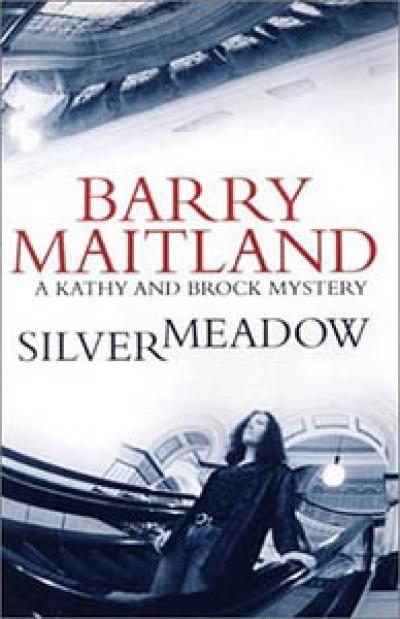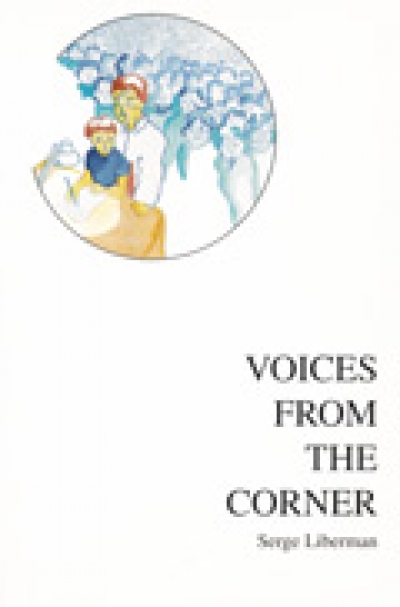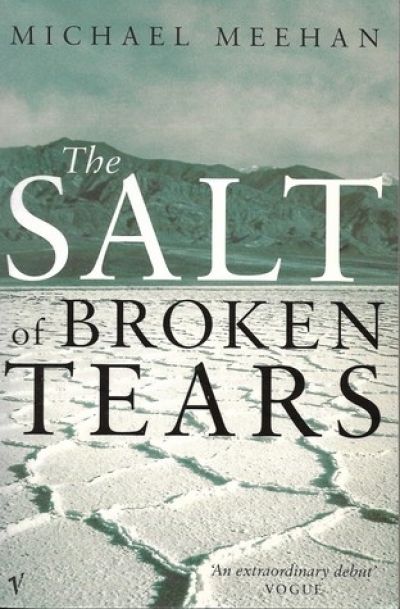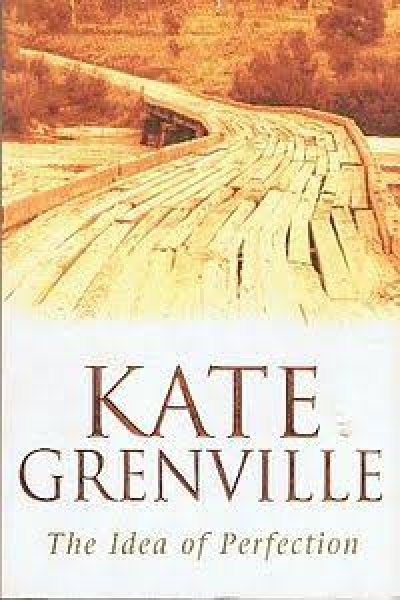Fiction
Tin Toys by Anson Cameron & Stormy Weather by Michael Meehan
These two second novels are rapid follow-ups to acclaimed début novels, Anson Cameron’s Silences Long Gone and Michael Meehan’s The Salt of Broken Tears. Each is, in its own way, resolutely vernacular. Meehan writes about the past and the country; Cameron writes largely about the city, very much today.
In Tin Toys, nevertheless, the characters are very aware of the Australian past. The central dilemmas of Cameron’s novels concern relations between blacks and whites. In Silences Long Gone the narrator’s stubborn old mother refuses to leave her house in a mining town that is being dismantled so that the territory can be returned to its native custodians. In the new novel, the narrator is himself the focus of the dilemma, as the offspring of a white father and black mother (in very peculiar circumstances). He begins life as a black baby, becomes a white boy and ends up a slightly confused young adult. After an opening flashback the narrative is driven by two things that happen to Hunter around the same time. His design for an Australian flag (which he has come up with by complete accident) is selected as a finalist in a national competition and his Japanese girlfriend goes missing in Bougainville.
... (read more)Sacked! by Rachel Flynn, illustrated by Craig Smith & Footy Shorts by Margaret Clark
Rachel Flynn’s Sacked! is for the eight-to ten-year-old market, the same audience that J.K. Rowling’s Harry Potter books are tapping. It’s an interesting stage when everything from cereal packets to Dad’s car manual demands to be read.
Sacked! explores a clever absurdity with tongue-in-cheek, where the adult is likely to see the joke more than the child.
... (read more)Family Business by Sophie Masson & The Rented House by Phil Cummings
When she sat down in that Edinburgh café almost three years ago to write Harry Potter and the Philosopher’s Stone, J.K. Rowling apparently determined that it would take a further six books to tell the complete story of her pubescent wizard. Millions of entranced and thoroughly hooked readers around the world are now breathlessly awaiting volume four. The books are immensely readable with a strong narrative drive, and Rowling cleverly leaves major plot points unanswered; one has to get the next in the series or die of curiosity. The same technique has served John Marsden well. Pity the poor parent who back in 1993 all unknowingly bought Tomorrow, When the War Began and then saw a further six titles progressively hit the bookshops, all in hardback first release, and all extending the saga. Many readers, including this one, wish he had stopped at number three but the temptation to continue must have been huge.
... (read more)Silver Meadow by Barry Maitland & An Uncertain Death by Carolyn Morwood
Five pages from the end of Silver Meadow, the hair on the back of my neck stood up, an effect not only of the thrilling denouement, but also a genuine frisson of aesthetic delight at a perfectly judged conclusion. Silver Meadow is a book which deserves to be noticed, not only by devotees of the police procedural (it is at least as good as anything Rendell, James or Rankin have written) but also by anyone with an interest in narrative form, the politics of contemporary space and/or rampant consumerism. This is a ‘seriously’ good book about sex and shopping.
... (read more)A few years ago I was teaching an anthology of Australian short stories to a group of very bright Spanish honours students at the University of Barcelona. As one would expect, some of the stories were written by Australia’s most famous and highly regarded writers but at the end of the course the students voted unanimously for Serge Liberman’s ‘Envy’s Fire’ as the finest story they had read on the course.
... (read more)In one sense, the publisher’s blurb on this novel says it all.
... (read more)Just before the publication of her novel Dark Places in 1994, Kate Grenville said that she was thinking about her next book, ‘a heart-warming old-fashioned love story’. Well, The Idea of Perfection – and isn’t that what all love stories are about? – is that love story, though it warms both heart and head, for the bliss it affords is not so much visceral as aesthetic, even architectural.
... (read more)Andrea Goldsmith’s second novel, Modern Interiors, is about a family, and marked out by its goodies and baddies. This is a moral novel about capitalism and the choices open to people within its system. Goldsmith uses outrageous caricatures to represent the baddies – those seduced and corrupted by the family’s damned money. And all of the goodies have an interest in and strenuously pursue the higher knowledges – poetry and fiction, philosophy and philanthropy. They are all good, and fair-minded people, if sometimes with too much sweetness and light.
... (read more)There are now 10,000 books written about Auschwitz. About the Holocaust there must be many more tens of thousands. Lily Brett is one of the great readers and collectors of these books. Her novels and poems are awash with Holocaust details and with an obsessive sense of responsibility for this impossible knowledge. Impossible because the horrific details cannot be held in the mind for long. In Too Many Men, the Holocaust stories do not come with the poised and philosophical moral gravity of an Inga Clendinnen, nor with the outrageous sensationalism of a Darville but with a doggedness and astonishment that are finally powerfully effective.
... (read more)During my reading of Susan Varga’s first work of fiction, Happy Families, I was drawn back into the fields of family and emotion as offered in the two recent American films: The Ice Storm and Six Degrees of Separation. Each of these works hard at tracking the intricacies of humans connecting and communicating, the tectonics of family and emotional landscapes. Happy Families shows us, up close, mothers and daughters, aunts and grandchildren and cousins, lovers and spouses and neighbours. The drive of the work is, as with the two films cited, about how trauma is carried in the body, how we try and trick ourselves about recoveries. And, to a lesser extent, how we integrate the apprehension of difference into our experience of walking through the world. Varga’s novel is one of restitution and connection.
... (read more)
